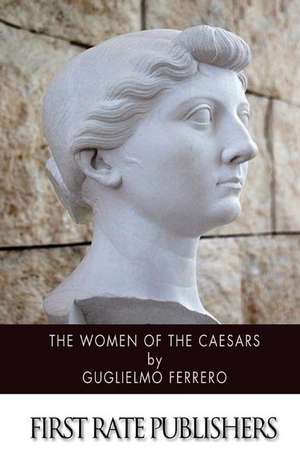The Women of the Caesars
Autor Guglielmo Ferreroen Limba Engleză Paperback
| Toate formatele și edițiile | Preț | Express |
|---|---|---|
| Paperback (3) | 40.07 lei 3-5 săpt. | |
| CREATESPACE – | 40.07 lei 3-5 săpt. | |
| – | 48.27 lei 3-5 săpt. | |
| CREATESPACE – | 94.94 lei 3-5 săpt. |
Preț: 40.07 lei
Nou
Puncte Express: 60
Preț estimativ în valută:
7.67€ • 7.96$ • 6.39£
7.67€ • 7.96$ • 6.39£
Carte disponibilă
Livrare economică 01-15 martie
Preluare comenzi: 021 569.72.76
Specificații
ISBN-13: 9781499718461
ISBN-10: 1499718462
Pagini: 66
Dimensiuni: 152 x 229 x 4 mm
Greutate: 0.1 kg
Editura: CREATESPACE
ISBN-10: 1499718462
Pagini: 66
Dimensiuni: 152 x 229 x 4 mm
Greutate: 0.1 kg
Editura: CREATESPACE
